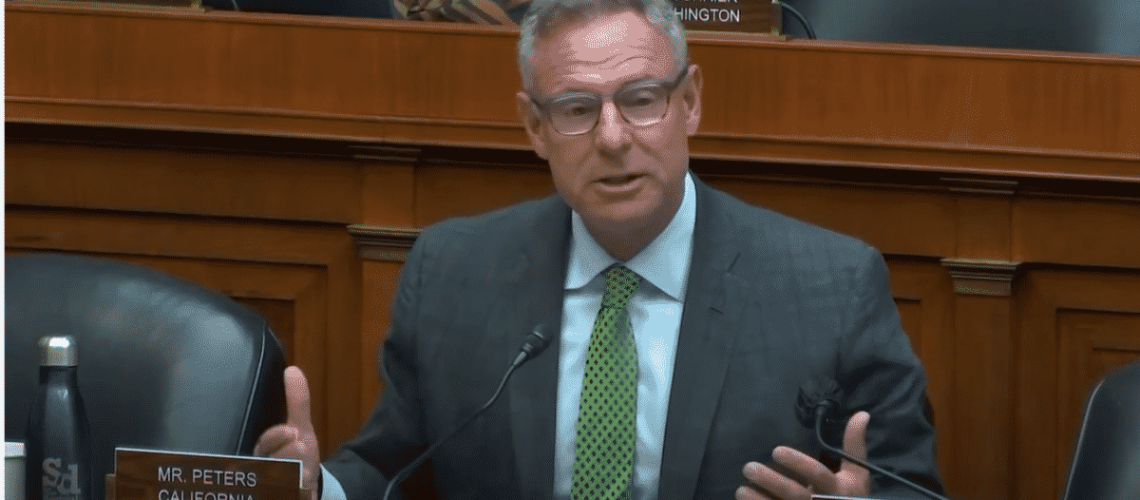Citing a potential loss of 100,000 US jobs, and a ten-year horizon to build domestic manufacturing, Rep. Scott Peters called upon Department of Energy Secretary Granholm to end tariffs on solar imports.
The dominant story in the US solar industry is the Department of Commerce investigation into alleged Chinese circumvention that could lead to heavy tariffs ranging 50-250% of the cost of polysilicon solar goods. About 80% of the US supply of polysilicon comes from the four Southeast Asian nations that are expected of harboring tariff-dodging Chinese goods.
The investigation has had nothing short of a chilling effect on the US solar industry, particularly at the utility-scale. Even before the investigation was formally announced, developer SOLV Energy CEO George Hershman commented, “deployment is frozen” due to the untenable level of risk placed by the investigation.
Congressman Scott Peters of California addressed the issue at the House Energy and Commerce Committee hearing on April 28, delivering the message to Secretary Jennifer Granholm of the Department of Energy (DOE).
“This case could cost us 100,000 American solar jobs and jeopardize our common clean energy goals,” said Peters. “Already 318 projects are being cancelled or delayed, and if the administration decides to impose tariffs, it could cause solar capacity to fall 75 GW short of the pace needed to reach the President’s solar goal.”
Rep. Peters went on to explain that solar panel supply is key to reliability in his state of California. Almost all new solar projects are paired with battery energy storage systems in the state, and without a panel supply, battery storage deployment is also compromised.
Peters added that in September of 2021, DOE released the Solar Futures Study which argued the US must deploy an average of 30 GW of solar capacity per year between now and 2025 to reach the President’s goal of having solar power 40% of nation’s electricity by 2035. The Solar Energy Industries Association said forecasts for 2022 and 2023 are being cut by 46% due to consideration of tariffs.
“Instead of doubling our solar deployment, we’re cutting it in half.” Representative Scott Peters of California
Rep. Peters then asked the council if the DOE was investigating the potential reliability and climate impacts of the tariffs.
“I share your deep concern about this,” said Secretary Granholm. “As you know, this decision is an adjudicative decision that rests with the Department of Commerce.”
“We sit here in the room the makes the laws,” replied Peters. “We’ve got paperwork that is in the way of policy now… this is the tail wagging the dog.”
Peters said he is fully supportive of the solar industry’s target of manufacturing 50 GW of domestic production annually by 2030. However, he added, even if the US was to pass the necessary incentives to expand manufacturing and offset imports, it would take five to ten years to scale up.
“Investing in manufacturing in the long run cannot be an excuse to stop solar deployment in the short term,” he said.
Sec. Granholm said that acceleration of domestic manufacturing is a key element of the DOE’s budget request. She agreed with Rep. Peters that short-term deployment goals are important as well, but that it is also important for the US not to buy circumvented goods or goods that have potential links to labor from the Xinjiang region of China. The region is under scrutiny for credible allegations of forced labor of China’s Uyghur population.
“We can it an existential crisis,” said Peters, “but we need to act like it’s an existential crisis. The fact that we have these laws that shoot ourselves in the foot and put our planet at risk is of great concern to me.”



